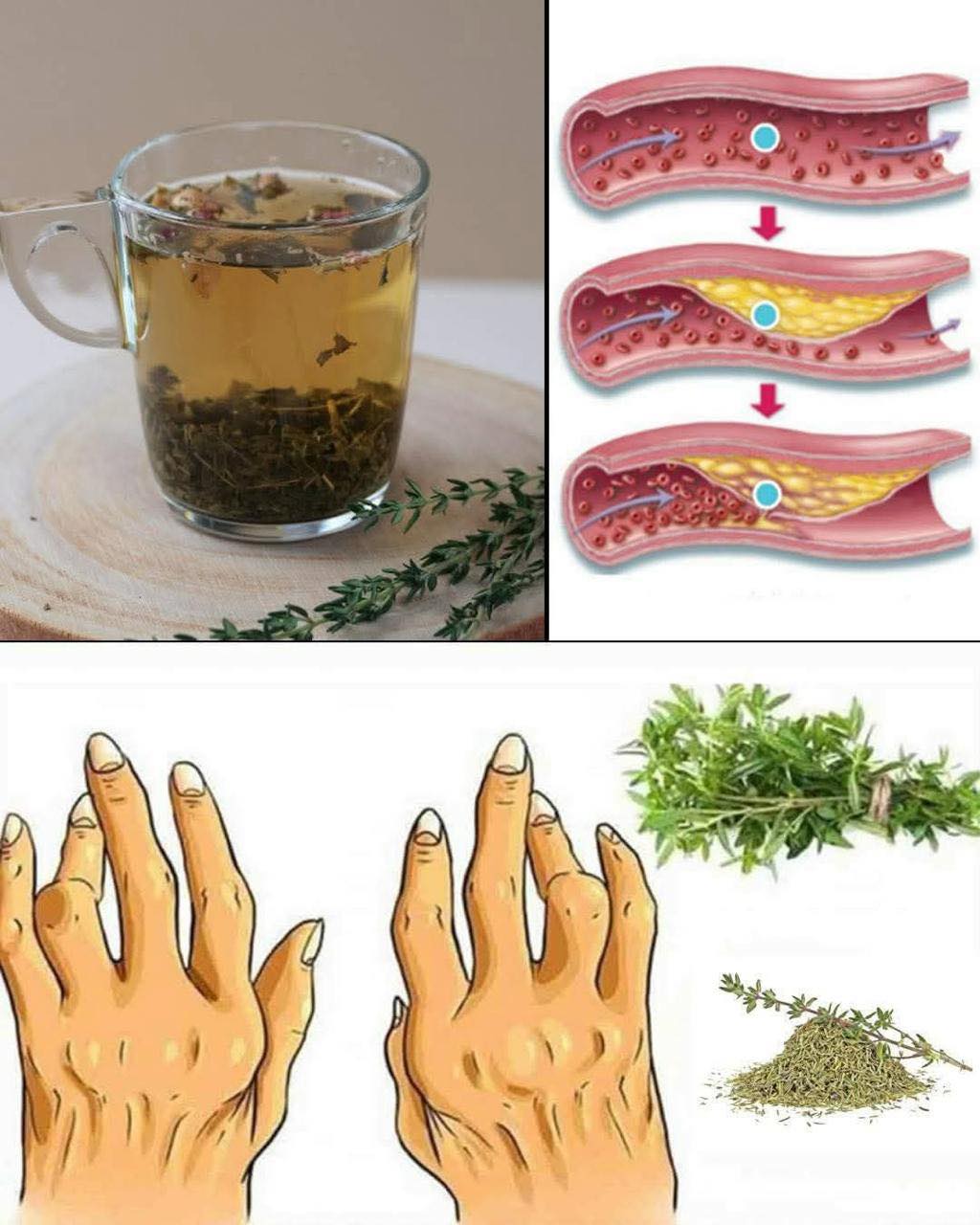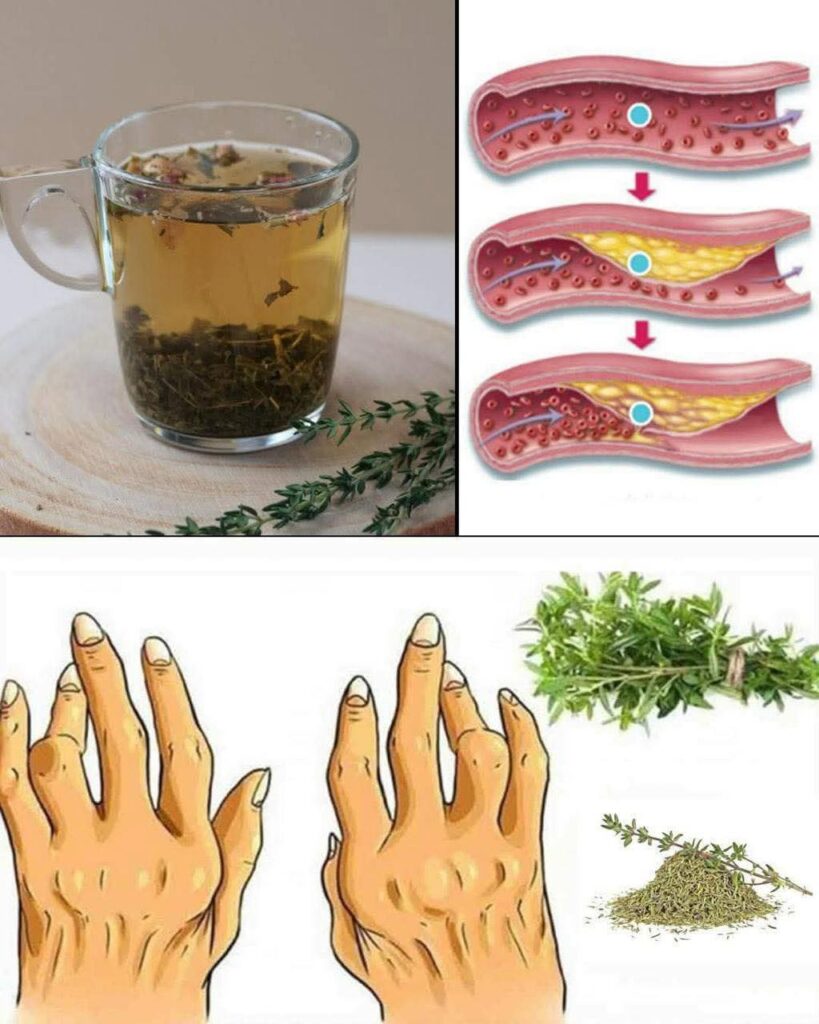There are herbs you cook with occasionally, and then there’s thyme—the little leafy green that has been part of kitchens, gardens, and medicine cabinets for centuries. At first glance, thyme looks delicate, almost modest, with its tiny leaves and subtle aroma. But behind that humble appearance hides a powerhouse of health benefits, cultural history, and practical uses that go far beyond seasoning roasted chicken.
If you’ve ever wondered why thyme has remained such a staple across generations and continents, the answer is simple: it works. Whether as a healing remedy, a natural preservative, or an aromatic flavor booster, thyme has earned its place as one of nature’s most versatile herbs.
So, let’s dive into the world of thyme—its benefits, everyday uses, and surprising secrets you’ll wish you had known sooner.

1. Thyme as a Natural Immune Booster
One of thyme’s best-kept secrets is its incredible ability to support the immune system. Packed with vitamin C, vitamin A, copper, iron, and manganese, thyme helps your body build resilience against everyday infections.
But the real magic lies in a compound called thymol, a natural oil found in thyme leaves. Thymol is known for its strong antibacterial and antifungal properties, making it a natural warrior against harmful microbes.
Think of those times when cold and flu season hits—adding thyme tea or thyme-infused soups to your diet can give your immune defenses the lift they need. Unlike over-the-counter supplements, thyme offers a gentle, natural way to stay healthy without side effects.
Quick tip: Steep fresh thyme leaves in hot water with honey and lemon. It makes a soothing tea that not only comforts you but also strengthens your immunity.
2. A Respiratory Hero: Clearing Coughs and Congestion
If you grew up with a grandmother who believed in herbal remedies, chances are thyme was her go-to cure for coughs. And she was right. For centuries, thyme has been used to ease respiratory issues, from simple colds to stubborn bronchitis.
The essential oils in thyme help relax the muscles of the trachea and bronchi, making it easier to breathe. It also loosens mucus, helping your body clear phlegm naturally. This is why many natural cough syrups include thyme extract.
Imagine those nights when a nagging cough keeps you awake. Instead of reaching for strong medications, a warm cup of thyme tea or a bowl of broth flavored with thyme might provide the relief you’re looking for.
Fun fact: Ancient Egyptians used thyme in their embalming process because of its antimicrobial powers, while Greeks burned it as incense, believing it gave courage. Clearly, thyme has always been associated with strength and vitality.
3. Thyme for Digestive Comfort
Ever felt bloated after a heavy meal? Thyme may help. This little herb has carminative properties, which means it can reduce gas, bloating, and stomach cramps.
Thyme stimulates the production of digestive enzymes, helping your body break down food more efficiently. This is why thyme often appears in recipes for fatty or heavy dishes—it doesn’t just add flavor, it also aids digestion.
Next time you cook beans, lentils, or rich meats, toss in a sprig of thyme. Not only will your dish taste better, but your stomach will thank you too.
4. Skin Health and Natural Beauty
The benefits of thyme aren’t limited to what goes inside your body. Thyme also works wonders for your skin. Its antibacterial properties make it effective against acne-causing bacteria, while its antioxidants help combat free radicals that lead to premature aging.
Some natural skincare brands already use thyme extract in face washes and creams designed for oily or acne-prone skin. If you’re a fan of DIY beauty, you can make a simple thyme infusion at home: steep fresh thyme in hot water, let it cool, and use it as a natural facial toner.
Pro tip: Mix thyme essential oil (just a drop or two) with a carrier oil like jojoba or coconut, and apply it to troubled spots for a natural acne remedy.
5. Thyme for Mental Clarity and Stress Relief
It’s easy to overlook the mental benefits of herbs, but thyme has a surprising role here too. The aroma of thyme is refreshing and uplifting, helping reduce stress and anxiety.
Studies suggest that thyme essential oil can improve mood and even enhance memory. Inhaling thyme’s scent or adding a few drops of the oil to a diffuser can create a calming environment, perfect for winding down after a long day.
There’s also a deeper symbolism: in the Middle Ages, thyme was given to knights for courage and mental strength. While we may not face medieval battles anymore, we all face stress and challenges, and thyme can be a gentle ally for mental resilience.
6. Thyme as a Natural Cleaner and Preservative
Before refrigerators and chemical disinfectants, thyme was already doing double duty in homes. Its natural antimicrobial properties make it an excellent preservative and cleaner.
In the kitchen, thyme can help extend the shelf life of food. In fact, research has shown that thyme oil can slow down the growth of harmful bacteria in foods, making it a natural preservative.
And when it comes to cleaning, thyme-based solutions can disinfect surfaces without the harsh chemicals found in commercial cleaners. That means a healthier home environment and less exposure to toxins.
DIY cleaner recipe: Mix a few drops of thyme essential oil with vinegar and water. Use it as a natural spray to wipe down counters and sinks.
7. Thyme for Heart Health
Another lesser-known benefit of thyme is its positive effect on cardiovascular health. Compounds in thyme can help reduce blood pressure and cholesterol levels, supporting overall heart function.
By improving circulation and reducing strain on the arteries, thyme contributes to a healthier cardiovascular system. Incorporating thyme into your meals isn’t just about taste—it’s a simple way to care for your heart every day.
8. Culinary Magic: Flavor and Beyond
Of course, we can’t talk about thyme without celebrating its role in the kitchen. From Mediterranean dishes to French cuisine, thyme is a cornerstone of culinary traditions worldwide.
It pairs beautifully with roasted meats, stews, soups, vegetables, and even bread. A sprinkle of thyme can transform ordinary potatoes into a gourmet side dish, or elevate roasted chicken to a new level of deliciousness.
But beyond flavor, remember that every time you cook with thyme, you’re also giving your body a dose of its many health benefits. Food and medicine truly meet in this humble herb.
Everyday Ways to Use Thyme
Now that you know thyme’s benefits, here are some simple ways to incorporate it into your daily life:
- Thyme tea – For cough relief and immunity.
- Infused honey – Add thyme sprigs to honey for a soothing blend that works wonders on sore throats.
- Cooking – Toss into roasted vegetables, soups, and meats.
- DIY skincare – Use thyme-infused water as a natural toner.
- Home cleaning – Create your own thyme-based disinfectant spray.
- Aromatherapy – Diffuse thyme essential oil for relaxation and focus.
Final Thoughts
Thyme isn’t just another herb on your spice rack—it’s a healer, a protector, a beauty aid, and a flavor enhancer rolled into one. From supporting your immune system and soothing coughs to uplifting your mood and cleaning your home naturally, thyme proves that some of the best remedies really do come from nature.
The next time you see those tiny leaves, remember: you’re holding centuries of wisdom, health, and flavor in your hands. So go ahead—brew it, cook with it, breathe it in, and let thyme work its timeless magic in your life.


